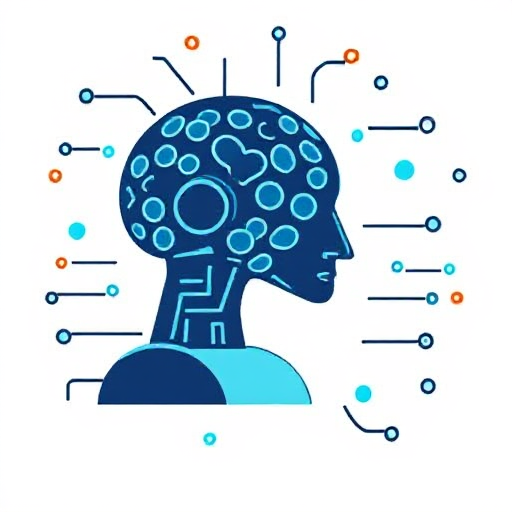
Machine learning (ML) has rapidly become one of the most influential fields in technology, impacting industries ranging from healthcare to finance, and from entertainment to autonomous driving. If you’re just starting out in this exciting field, finding the right resources to learn can be overwhelming. Fortunately, there are many excellent courses designed specifically for beginners that can help you get up to speed. This article provides a comprehensive guide to some of the best machine learning courses for beginners, highlighting key features, course structure, and platforms.
1. Coursera: Machine Learning by Andrew Ng (Stanford University)
Overview:
The Machine Learning by Andrew Ng course is perhaps the most well-known and widely recommended course for beginners. Taught by Professor Andrew Ng, a co-founder of Coursera and one of the leading experts in AI and machine learning, this course is an excellent starting point for anyone new to the field.
Key Features:
- Content: Covers key ML concepts like supervised learning, unsupervised learning, neural networks, and deep learning.
- Duration: Approximately 11 weeks, with a recommended 5-7 hours of study per week.
- Prerequisites: Basic knowledge of high school mathematics (linear algebra, probability, and basic calculus).
- Format: Video lectures, quizzes, and assignments.
Why It’s Great for Beginners:
- Accessible: Andrew Ng explains concepts clearly and concisely, making it easy to understand even for those with minimal programming experience.
- Practical: Includes hands-on assignments using Octave (a free software similar to MATLAB), which makes it easy to implement and experiment with ML algorithms.
Link: Machine Learning by Andrew Ng (Coursera)
2. edX: Principles of Machine Learning by Microsoft
Overview:
The Principles of Machine Learning course by Microsoft on edX is a beginner-friendly introduction to ML. It’s part of the Microsoft Professional Program in Data Science and focuses on the basics of ML algorithms, data exploration, and model evaluation.
Key Features:
- Content: Explains the fundamentals of supervised and unsupervised learning, overfitting, and basic data preprocessing.
- Duration: 6 weeks, 4-5 hours per week.
- Prerequisites: Familiarity with programming (especially in Python) and basic statistics is helpful but not required.
- Format: Video lessons, quizzes, and practical exercises on the Azure platform.
Why It’s Great for Beginners:
- Microsoft Expertise: The course is crafted by one of the leading companies in the tech world, giving it strong credibility and industry relevance.
- Hands-On Experience: Uses Azure Machine Learning Studio to create and train models, allowing students to gain practical skills that can be directly applied in real-world settings.
Link: Principles of Machine Learning (edX)
3. Udacity: Intro to Machine Learning with PyTorch and TensorFlow
Overview:
Udacity’s Intro to Machine Learning with PyTorch and TensorFlow is a comprehensive, project-based course designed for beginners looking to build a foundation in machine learning and deep learning using two of the most popular libraries in the field: PyTorch and TensorFlow.
Key Features:
- Content: Covers basic ML algorithms, deep learning, neural networks, and model optimization using both PyTorch and TensorFlow.
- Duration: 3 months (if you spend 10 hours a week).
- Prerequisites: Basic programming skills in Python and basic knowledge of statistics and algebra.
- Format: Project-based learning with hands-on assignments, quizzes, and peer reviews.
Why It’s Great for Beginners:
- Project-Focused: Students get to build real-world projects that can be showcased in their portfolios, which is crucial when transitioning to the workforce.
- Practical Tools: By learning both PyTorch and TensorFlow, you gain experience with two of the most powerful frameworks used in industry today.
Link: Intro to Machine Learning with PyTorch and TensorFlow (Udacity)
4. DataCamp: Introduction to Machine Learning with Python
Overview:
DataCamp offers a wide range of interactive courses on machine learning, and their Introduction to Machine Learning with Python is designed specifically for beginners who want to get hands-on experience with ML using Python and the scikit-learn library.
Key Features:
- Content: Focuses on supervised learning techniques like regression and classification, as well as model evaluation and selection.
- Duration: 4 hours.
- Prerequisites: Basic knowledge of Python programming.
- Format: Interactive coding exercises and projects within the DataCamp platform.
Why It’s Great for Beginners:
- Hands-On Learning: The interactive environment encourages beginners to practice coding while they learn, reinforcing concepts through real-time feedback.
- Python-Based: Teaches machine learning using Python, which is one of the most popular and beginner-friendly programming languages in data science.
Link: Introduction to Machine Learning with Python (DataCamp)
5. Kaggle: Intro to Machine Learning
Overview:
Kaggle, known for its data science competitions, offers an Intro to Machine Learning course that provides a brief yet comprehensive overview of the key concepts in machine learning. It’s an ideal choice for beginners looking to quickly dive into hands-on machine learning.
Key Features:
- Content: Introduction to machine learning basics such as classification, regression, and evaluating model performance.
- Duration: 6 hours.
- Prerequisites: Basic understanding of Python and data handling (e.g., using pandas).
- Format: Video tutorials, interactive exercises, and a practical project using Kaggle’s own platform.
Why It’s Great for Beginners:
- Free and Accessible: Kaggle provides this course completely free of charge, making it a great resource for anyone on a budget.
- Engagement with Real Data: Kaggle’s platform lets students work with real-world datasets, giving them practical experience that’s applicable in the industry.
Link: Intro to Machine Learning (Kaggle)
6. Fast.ai: Practical Deep Learning for Coders
Overview:
Fast.ai offers a course aimed at individuals who already have some coding experience but are new to deep learning. Practical Deep Learning for Coders is designed to get learners working with real-world deep learning applications as quickly as possible.
Key Features:
- Content: Focuses on deep learning, including neural networks, CNNs (Convolutional Neural Networks), and transfer learning.
- Duration: Self-paced, but typically takes around 7 weeks to complete.
- Prerequisites: A good understanding of Python and basic programming concepts.
- Format: Video lessons, coding exercises, and projects.
Why It’s Great for Beginners:
- Hands-On Learning: Fast.ai’s approach is to get you working on projects quickly, allowing you to build deep learning models with just a few lines of code.
- Beginner-Friendly Deep Learning: The course is designed to teach deep learning in a very approachable manner, using a high-level API that abstracts away many of the complexities.
Link: Practical Deep Learning for Coders (Fast.ai)
Conclusion
Machine learning is a vast and rapidly evolving field, but with the right resources, beginners can quickly gain the knowledge and skills required to start building and experimenting with ML models. The courses listed above provide a solid foundation in both theory and practice, ensuring that learners not only understand the core concepts but also gain hands-on experience with tools and frameworks used in the industry.
Whether you’re looking for a structured university-led course, a project-based learning path, or a more interactive coding-focused experience, there’s a course that can cater to your learning style. Start with one that suits your background and interests, and you’ll be well on your way to becoming proficient in machine learning.






